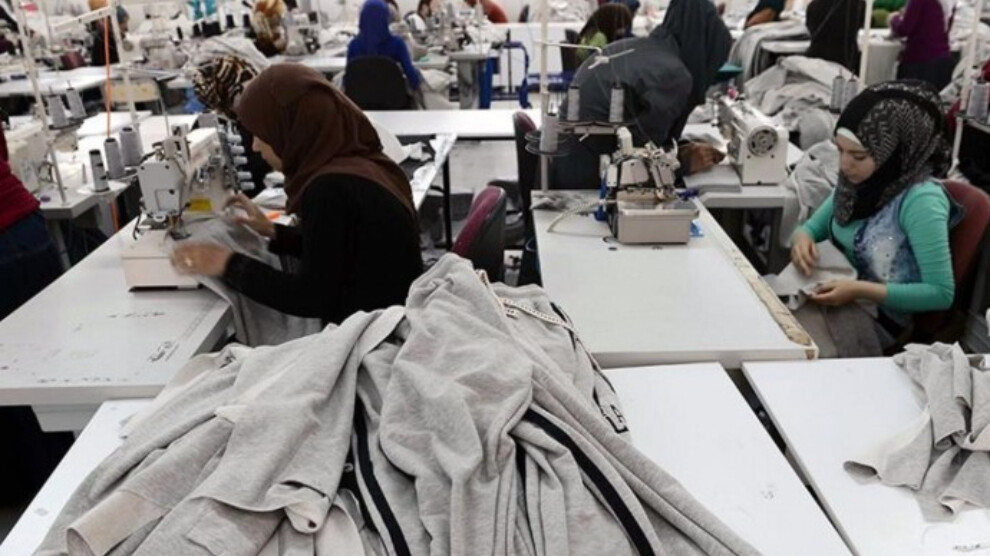Refugee workers are not registered neither while working nor after death
Refugee workers are not registered neither while working nor after death. Because refugee worker deaths are not recorded, there are no sanctions against employers.
Refugee workers are not registered neither while working nor after death. Because refugee worker deaths are not recorded, there are no sanctions against employers.

Nearly 8 million people are exploited in hazardous and dangerous jobs after being forced to flee their countries and seeking refuge in Turkey. Refugees who work under harsh working conditions and long hours for little wages are kept unregistered in the country. Therefore, the number of refugee workers who died in the workplace remains unknown. Except for data on work-related killings, no public agencies, unions, or organisations keep records in this regard.
94 workers lost their lives in 2021
According to the Occupational Health and Safety (ISIG) Council's data, in 2021 at least 94 immigrants were killed in occupational homicides. 42 of the workers who lost their lives were Syrians; 17 were Afghans; 7 were Russians; 7 were Turkmenistanis; 5 were Pakistanis; 3 were Somalis; 2 were Azerbaijanis; 2 were Georgians; 2 were Iranians; and the rest were residents of Bulgaria, South Korea, Hungary, Moldova, Serbia, Uganda, and Ukraine. Two migrant labourers from Afghanistan and Pakistan died in January 2022, while at least ten migrant workers perished in February. These data, taken from ISIG press scans, are far lower than the real number.
Bodies left in different places
When migrant workers die, many employers dispose of their bodies in locations that are unrelated to their workplaces or report another cause of death. This is also true in the case of work-related injuries. When employers must transport migrant workers to the hospital, it is already made known that the cause of injury is almost always a house accident. As a result, employers are not subject to any penalties.
'Migrant workers mean cheap labour'
Burcu Çıra, one of the Migrant Union Initiative's founders, believes that migrant workers' difficulties will be solved by organized struggle. Çıra stated that employers exploited the desperation of migrant workers and that migrant workers work more than 15 hours a day in inhumane conditions in sectors such as agriculture, textile and construction.
Stating that employers benefit from the unregistered employment of refugee workers, Çıra said: “With the prospect of being deported, refugee labourers are forced to work longer hours. More employment is created, but workers are paid significantly less. The most heinous type of labour exploitation is the use of one's own body. To avoid returning to the conditions from which he fled, a worker who must flee his nation is forced to accept all of these forms of slavery. For bosses, this implies lower costs and higher profits."
'Racism deepens exploitation'
Çıra emphasized that immigrants use the "piecework" strategy to work from home because they are afraid of being exposed to prejudice, but that in this situation, workers earn less by working more. Let's also remind you that women workers are exploited at least as much as workers working outside of the domestic, piece-rate labour market due to the instability induced by apathy." She added that this condition leads to exploitation of migratory women workers. Because they are unable to work, have language barriers, are unable to locate a safe location to leave their children, or are afraid of being exposed to prejudice, refugee women are trying to manage their lives by doing piecework at home at very low rates.
‘Migrants not registered when they die’
Underlining that the record of migrant workers is not kept even when they die, Çıra said that this situation causes the bosses not to be punished. Çıra stated that one of the reasons why migrant workers could not be registered was the prolongation of the ID process. “Formal employment for migratory labourers is nearly impossible. The procedure of obtaining an identity has been lengthened and made more complex. The boss, who follows the idea of exploiting the solitary worker without distinguishing between local and foreign workers, adds to the already existing exploitation situation by threatening to send them back to an uncertain future. Capital sees the migratory worker as a possible profit source due to indifference.”
Çıra, who said that states set the path for immigrants' deaths by failing to implement international accords, believes that such policies should be eliminated. Racism has spread as a result of governmental policy, according to Çıra, and migrant labourers are unsafe at work, at home, and on the streets. He reminded of last summer's attacks on Syrian refugees in Altındağ, emphasizing how immigrants have become targets of hate speech.
Çıra continued: “Immigrants are killed, lynched, insulted, exposed to attacks. After the Altindag attacks, thousands of immigrants were displaced. Dozens of immigrants' homes and shops were looted and stoned. In the past months, three Syrian workers have been burnt to death while they were sleeping in the lodging of the factory where they worked just because they are Syrians. They are attacked with insults such as "Get out, Syrian!" with irrelevant excuses such as not having the cigarettes they want in the places they work. This happened at Esenyurt a few months back. Unfortunately, there are just too many examples to list. We are seeing how the immigrants who should be protected are made into targets by hate speech. Before things get out of hand, we should find ways to avoid any further problems.”
‘Call for a united struggle’
Adding that people should fight together to prevent oppression and attacks against immigrants, Çıra said, "We must not allow racism to divide the working class and the people; instead, we must work to create a future in which we can all live in peace, through struggle and increased class solidarity."